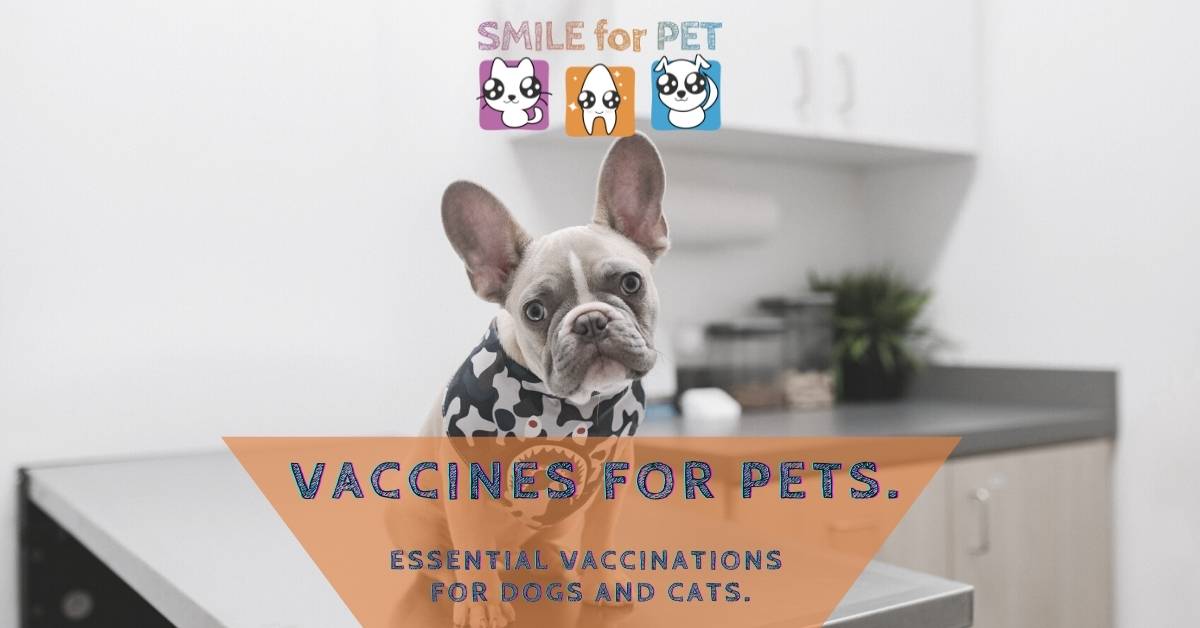Vaccines for pets and other immunobiological medicines are the only way to prevent many infectious diseases in humans and animals today.
Estimated reading time: 6 minutes
Table of contents
Introduction
If you’re like most pet owners we know, there’s nothing more important than keeping your pet healthy. But if you’re a new parent to a fur baby, it can be challenging to figure out what your pet needs. Especially the case when it comes to vaccinating your new pet. How do you know which ones your pet needs with so many vaccines on the market? As it turns out, there are four standards of “core vaccines” that veterinarians typically administer to cats and dogs. We’ve broken them down for you below.
What is core Vaccines for pets?
2 vaccines are essential for both dogs and cats:
- Rabies
- Distemper
Plus there are two additional ones for pups and kitties.
For dogs:
- Canine parvovirus
- Canine hepatitis
For cats:
- Feline calicivirus
- Canine hepatitis
What are non-core Vaccines for pets?
For dogs:
- Bordetella bronchiseptica
- Borrelia burgdorferi
- Leptospira bacteria
For cats:
- Feline leukemia virus
- Bordetella
- Chlamydophila felis
- Immunodeficiency virus
Let’s dive deeper…
1. Rabies
Rabies is one of the most well-known vaccinations required by law. It’s one of the core vaccines for pets.
This type of vaccine used to be required annually. Still, in recent years the recommended frequency has been extended to once every three years, as research has given medical professionals more insight into its effectiveness. The rabies vaccine is so important because it protects your pet and other humans from the spread of rabies, which is transmitted through the bite of an infected animal.
2. Distemper
While distemper poses no threat to humans, it can be extremely dangerous for your pet should they contract it. And while distemper affects both cats and dogs, the disease is caused by a different virus in cats than in dogs.
Canine distemper is caused by the paramyxovirus, which is related to the virus that causes measles and mumps in humans. It is highly contagious among other dogs and primarily affects the respiratory and digestive systems.
Symptoms can include congestion, coughing, and discharge from the eyes and nose, as well as vomiting and diarrhea. Feline distemper, on the other hand, is caused by the panleukopenia virus. It is highly contagious among other cats and is transmitted through all bodily fluids and secretions. Because of this, fleas, ticks, and other insects can play a role in its transmission. The first symptom is usually a very high fever, which is then rapidly followed by vomiting, diarrhea, anorexia, and depression. The virus typically causes a very low white blood cell count, which hampers your pet’s ability to fight the disease.
3. Vaccines for dogs
Canine parvovirus
Canine parvovirus, more commonly known as parvo, is highly contagious and can be deadly if not treated. The disease is usually spread when a healthy dog sniffs an infected dog’s poop, though it can also be spread on your shoes from walking through an area where an infected dog has been. The disease manifests itself in one of two ways:
- The intestinal form
- The cardiac form
The intestinal form of parvo is more common and brings symptoms like vomiting, diarrhea, lack of appetite, and weight loss. The cardiac form usually appears in puppies between the ages of six weeks and six months. In this form, the virus attacks the heart muscle and often leads to death.
Canine hepatitis
Canine hepatitis is caused by the canine adenovirus, which affects your dog’s respiratory system, liver, and kidneys. It is spread through the bodily fluids of an infected dog to the mouth and nose of a healthy pup — usually, by sniffing another dog’s poop — and is often confused with parvo.
- Symptoms usually include fever, coughing, and loss of appetite. Your dog’s abdomen may also be tender, or she may vomit. Some dogs may also show signs of jaundice.
This disease is a bit less serious than some of the others we’ve mentioned here, as pups usually recover. Still, vaccination goes a long way toward preventing the disease and keeping your dog safe.

4. Vaccines for cats
Feline calicivirus
Feline calicivirus is a very common and highly communicable respiratory disease among cats. It’s especially common in facilities like cat shelters and multi-cat homes. The disease is spread through bodily fluids and can be transmitted through the air or orally — usually by sniffing or licking. Symptoms include loss of appetite, discharge from the eyes and nose, difficulty breathing, fever, and ulcers on the tongue, mouth, nose, or toes. Calicivirus is one of the core Vaccines for pets.
Feline herpesvirus
Feline herpesvirus is another common respiratory virus that affects cats, especially kittens or and pregnant cats. This virus is transmitted only through direct contact with an infected cat and is carried in the saliva, as well as secretions from the eyes and nose. Your kitty may have a high fever, fits of coughing or sneezing, and runny eyes and nose. Most cats recover from the feline herpes virus with the help of antibiotics. Additionally, the vaccine has proven helpful in slowing the spread of the disease among animals.

When should I vaccinate my pet?
If you’re the proud new owner of a puppy or kitten, it’s important to start vaccinations young. They should receive their first round of all four core vaccines between six and eight weeks of age. Your furbaby should be revaccinated a minimum of three times before the 16-week mark. When they turn one, they should receive a booster round of all four core vaccines.
Adult dogs and cats can go longer between vaccines. Most vaccines should be administered annually, although certain shots provide longer immunities than others. Specifically, your adult dog can be vaccinated for canine rabies, distemper, and parvo every three years. However, your cat still needs to receive shots on an annual basis. Your veterinarian may also recommend a titer test, which measures your pet’s antibody levels and helps us decide if it’s time for revaccination.
And depending on your pet’s lifestyle and health history they may need other, non-core vaccines as well. Be sure to check with your veterinarian before deciding which vaccinations your furbaby needs.
Conclution: Vaccines for pets
Vaccination has eradicated smallpox and greatly limited the spread of diseases such as polio, measles and tetanus. Vaccines also help counteract the spread of transboundary animal diseases and zoonotic infections, such as rabies.

